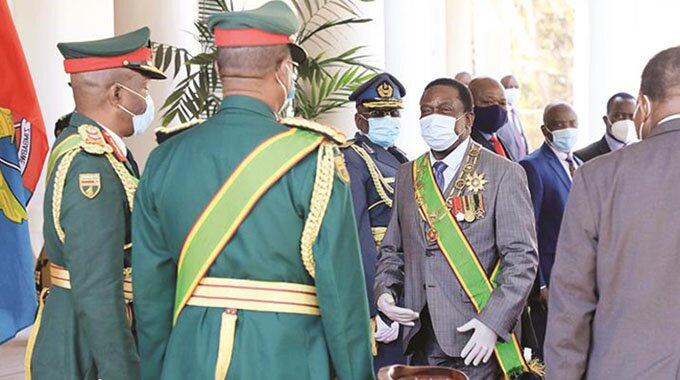Yesterday Zimbabwe woke up to news of the death of one of its committed freedom fighters and patriots.
Cde Perrance Shiri, the Minister of Lands, Agriculture, Water and Rural Resettlement, died early yesterday morning in Harare.
He was 65.
He will be remembered for his commitment to the liberation of this country as he elected to abandon his secondary education in order to join fellow freedom fighters in neighbouring countries.
After training as a guerrilla fighter, he was deployed to the front and operated from Tete province in Mozambique. His efforts on the war front and those of his fellow fighters forced colonial settlers to agree to independence.
On the eve of the last phase of the war, Cde Shiri went to Romania for further training. During the ceasefire period he was in charge of three assembly points. In 1980, he was attested into the army and rose through the ranks, becoming the first commander of 5 Brigade and later transferred to the Air Force of Zimbabwe (AFZ) in 1984.
Five years later he was promoted to Air Vice Marshal, becoming Air Marshal, Commander of the Air Force three years later in 1992.
His death comes less than two weeks before the country honours the gallant fighters of the liberation struggle.
Annually, the country celebrates and salutes the heroes and heroines of the First and Second Chimurenga on August 10, and the Defence Forces on the following day.
An unassuming character, Air Chief Marshal Shiri, during his leadership of the Air Force of Zimbabwe, is credited with spearheading the upgrading of some of the schools in remote areas of the country that were still thatched structures.
Later, this role was extended to rural health facilities.
In this role, he demonstrated his and the Air Force of Zimbabwe’s commitment to improving educational facilities for children in the rural areas, essentially bridging the divide between schools in urban areas and those in the rural areas, where the majority of the people in Zimbabwe live.
He was one of the key figures credited with managing the transition from the First Republic to the second during the last two weeks of November 2017.
His appointment as Minister of Lands, Agriculture and Rural Resettlement was perhaps one of the master strokes of the Second Republic.
Cde Shiri was at home in that portfolio. He lived and dressed the part. He came across as being very down to earth. One got the sense he fitted very well with the players in agriculture.
He is also perhaps one of the few Cabinet ministers who empowered his deputies — Vangelis Haritatos and Douglas Karoro. And they rose to the challenge, ably representing him in executing the Government mandate in the revival of the agricultural sector.
It was under his leadership of the Ministry of Lands, Agriculture, Water and Rural Resettlement that the Government spearheaded the promotion of three key planks in agricultural production.
The first being traditional crops for their resilience to the vagaries of unprecedented climatic conditions that threaten food security. Promotion of traditional crops is informed by their nutritional value.
The second plank is the Pfumvudza programme designed to ensure productivity of grain, thus securing household and national food security status.
The concept of Pfumvudza is designed to maximise productivity per unit area, even during drought periods. Properly rolled out, Pfumvudza can ensure household and national food and nutritional security, by making use of small land sizes and applying the appropriate practices in order to achieve higher returns.
The approach can be used in marginal areas and yet still deliver higher yields, which allow smallholder farmers to achieve household food security. The third plank that Cde Shiri has been championing is the resuscitation of irrigation schemes throughout the country. This is driven by the realisation that success of the schemes will revitalise local economies, create employment opportunities, and establish growth nodes around the country while contributing to food security.
Zimbabwe is therefore mourning the loss of someone who not only fought for the liberation of this country but lived to see and participate in the implementation of the ideals of putting the land to productive use.
This, he did by proposing the downsizing of farms allocated to beneficiaries of the Land Reform Programme, effectively forcing the beneficiaries to make maximum use of the land they were given.
The challenge that Cde Shiri leaves behind to all Zimbabweans who benefited from the land redistribution exercise is that they should demonstrate commitment to agricultural self-sufficiency, something that they historically were denied under settler colonial administrations.
– HERALD



